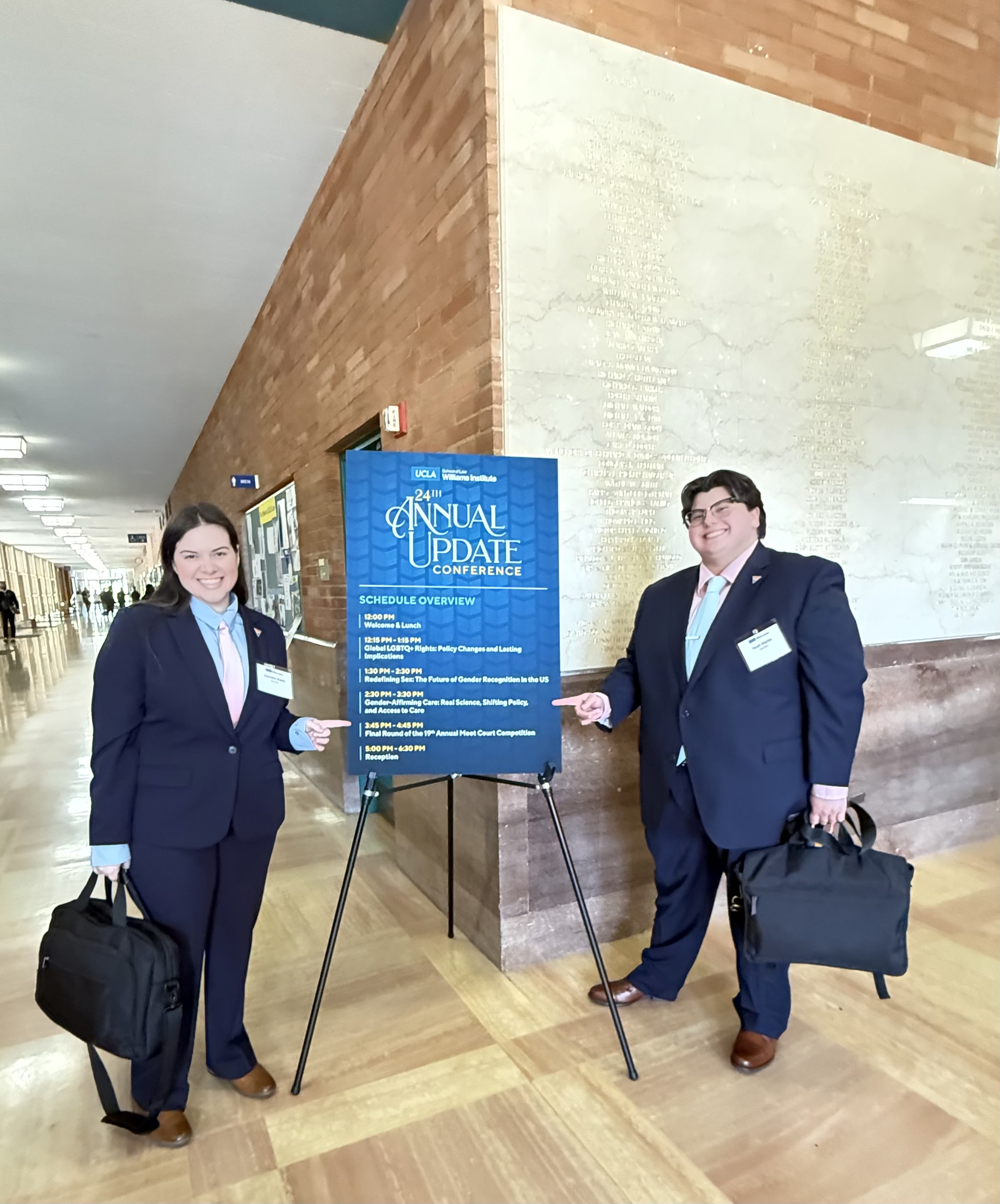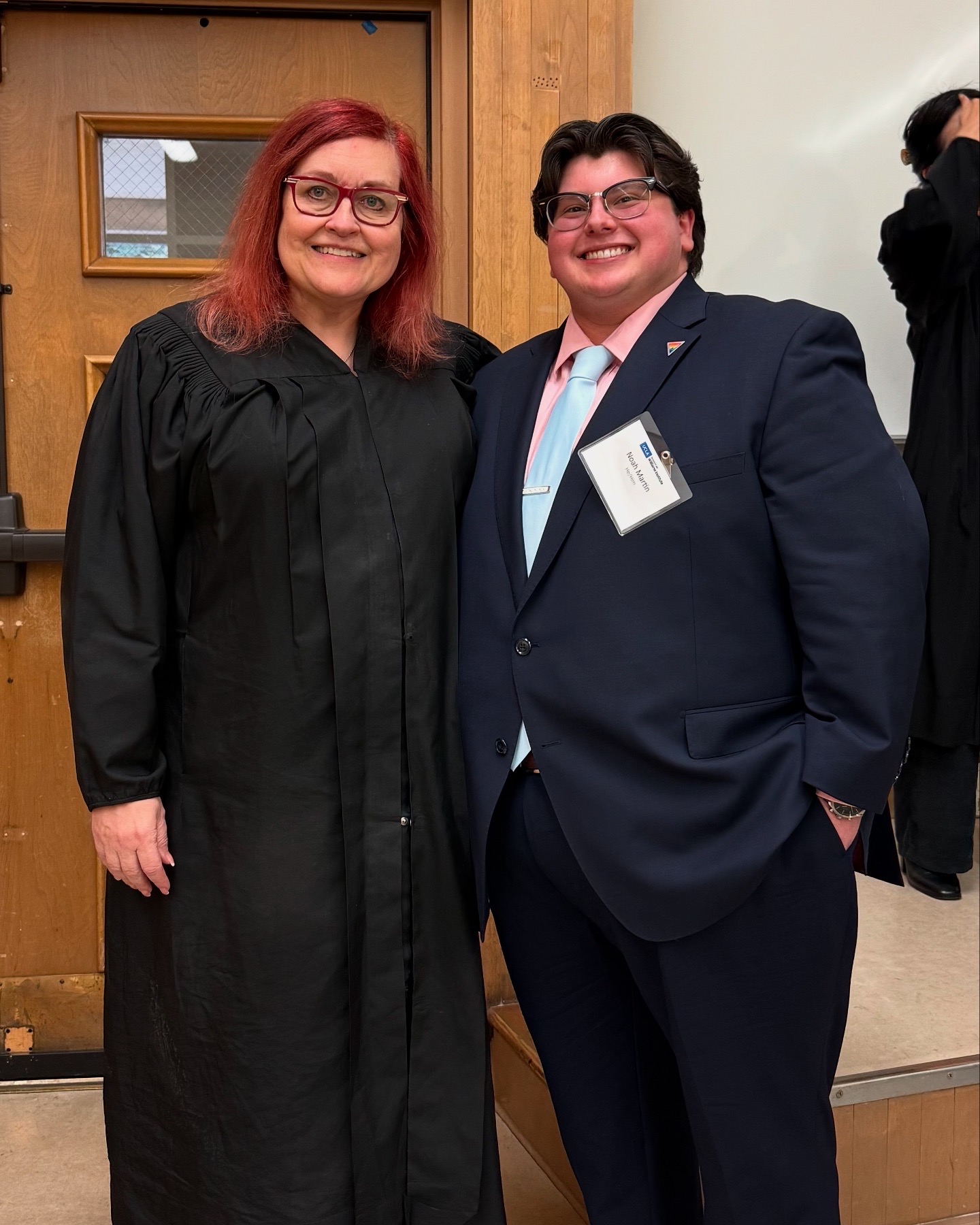Last week, Spartan law students became national champions, earning first place at the 19th Annual Williams Institute Moot Court Competition. The WIMC, held at the University of California, Los Angeles School of Law, is the nation’s leading moot court competition dedicated to sexual orientation and gender identity law.
“Every year, the Williams Institute competition highlights important current and nuanced issues that are impacting the lives of LGBTQ+ people,” said Heather Johnson (J.D. ’12), fixed term faculty. “To be competitive in this program you not only have to be exceptional at oral advocacy, but you also must have a depth of knowledge in constitutional legal issues that require advanced research and coursework.”
Johnson coached Noah Martin, ’25, and Gabby Sheets, ’26, to excel at the preliminary, quarter-final and semi-final rounds on March 15, advancing to the finals on April 4. They surpassed more than 32 teams from universities including Columbia, Cornell, Fordham and the University of New Mexico at finals to secure the winning title.
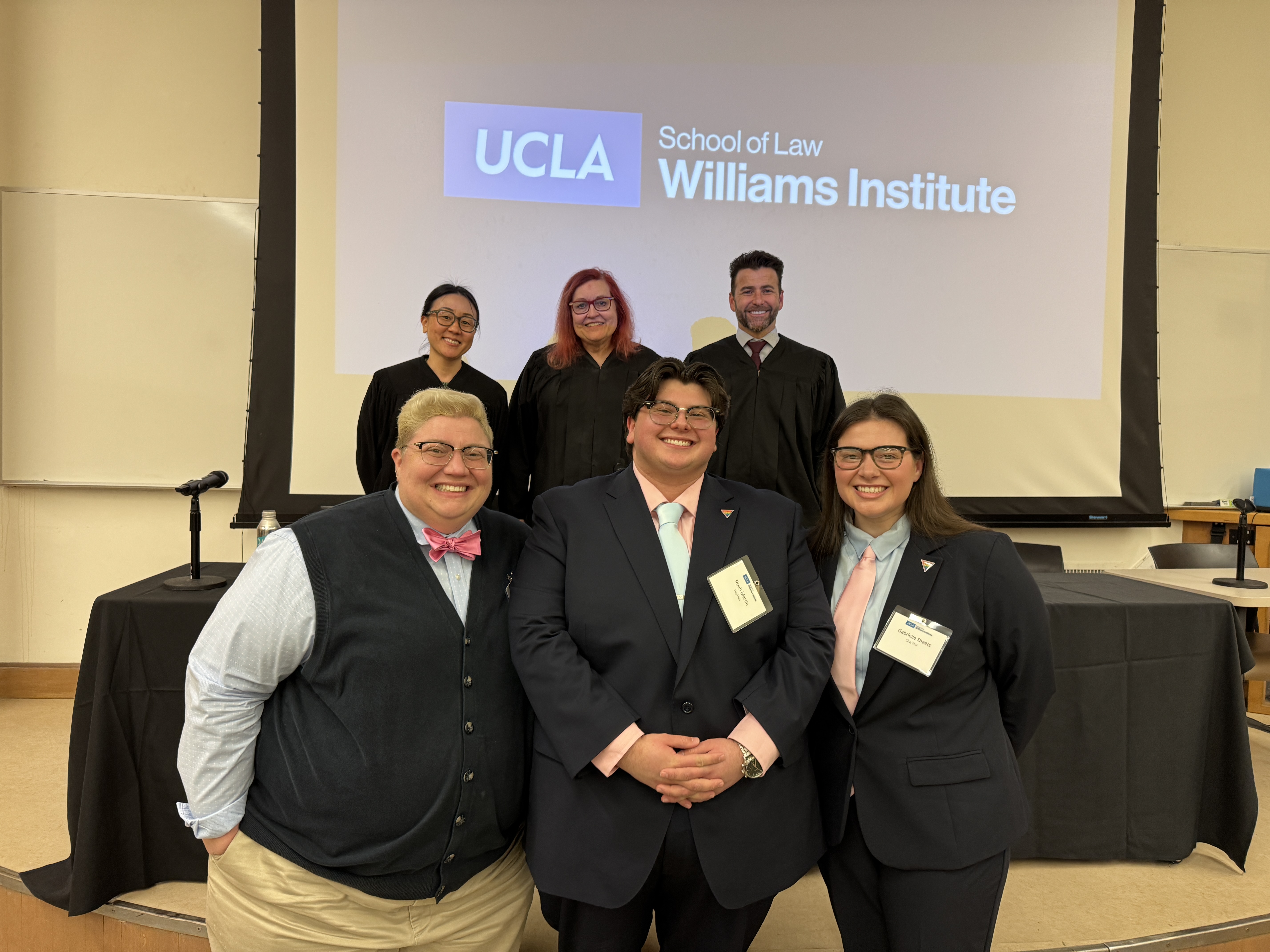
“Being a member of this team, focusing on a topic that I was so passionate about, and cultivating these skills was truly so monumental for me,” Sheets said. Becoming a national champion at the WIMC marks her first time participating in any moot court competition.
“It didn’t come easy,” she said. “Hard work, passion and true dedication really helped us take that step above the competition.”
Martin shared how the team’s victory this year was especially rewarding for him after competing at the WIMC in 2024 and being eliminated before the preliminary rounds.
“Winning this competition taught me that perseverance and persistence works,” he said. “As a kid from a small farming town in Michigan, going to MSU was always a dream. I feel proud to attend the law school and to represent MSU but bringing home the win was truly an honor.”
A second Spartan team also competed in the event, consisting of Stephanie Diamond, ’25, and Joshua Trierweiler, ’26. Though they did not walk away with any awards, Johnson highlighted how they wrote an exceptional brief and narrowly missed advancing to elimination rounds.
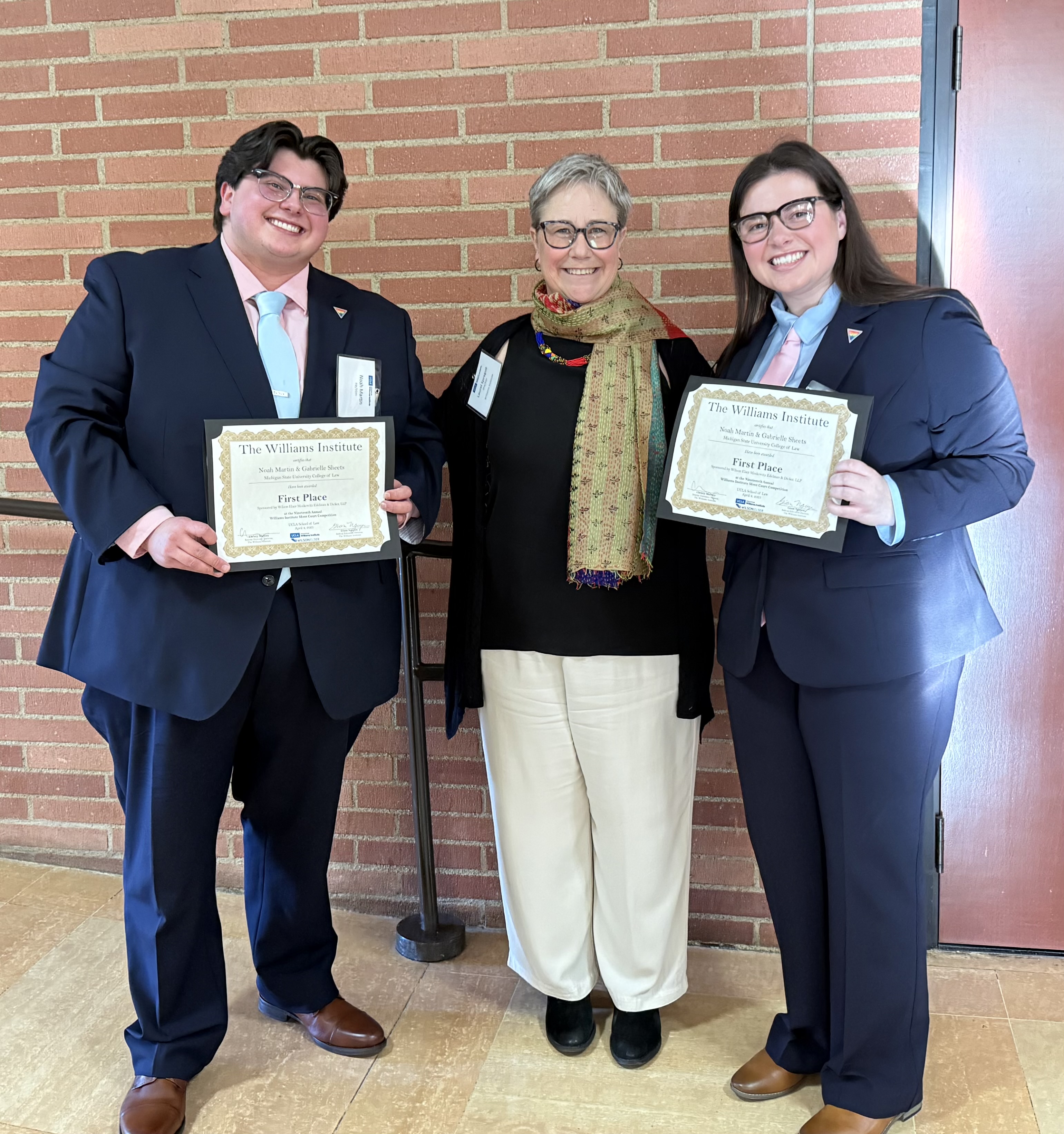
Trierweiler shared: “One of my biggest takeaways is that when you participate in a competition with so much informational nuance and against such skilled teams, there is always something you can improve on and work harder to perfect. Whether that be rereading cases, maximizing the persuasiveness of your argument or just repeating a section of your argument until it is memorized, there is always a way to improve.”
The Spartan advantage
This victory is MSU’s first national championship appearance at the WIMC, making it a historic win. For Johnson, it also hits a personal note of Spartan pride.
“Is law nerd street cred a thing? From being a student competitor to an alumni mentor to a faculty coach, it has been my passion project for 15 years,” she said. Johnson first came across the WIMC when she was a student at MSU Law and has been a faculty coach since 2011.
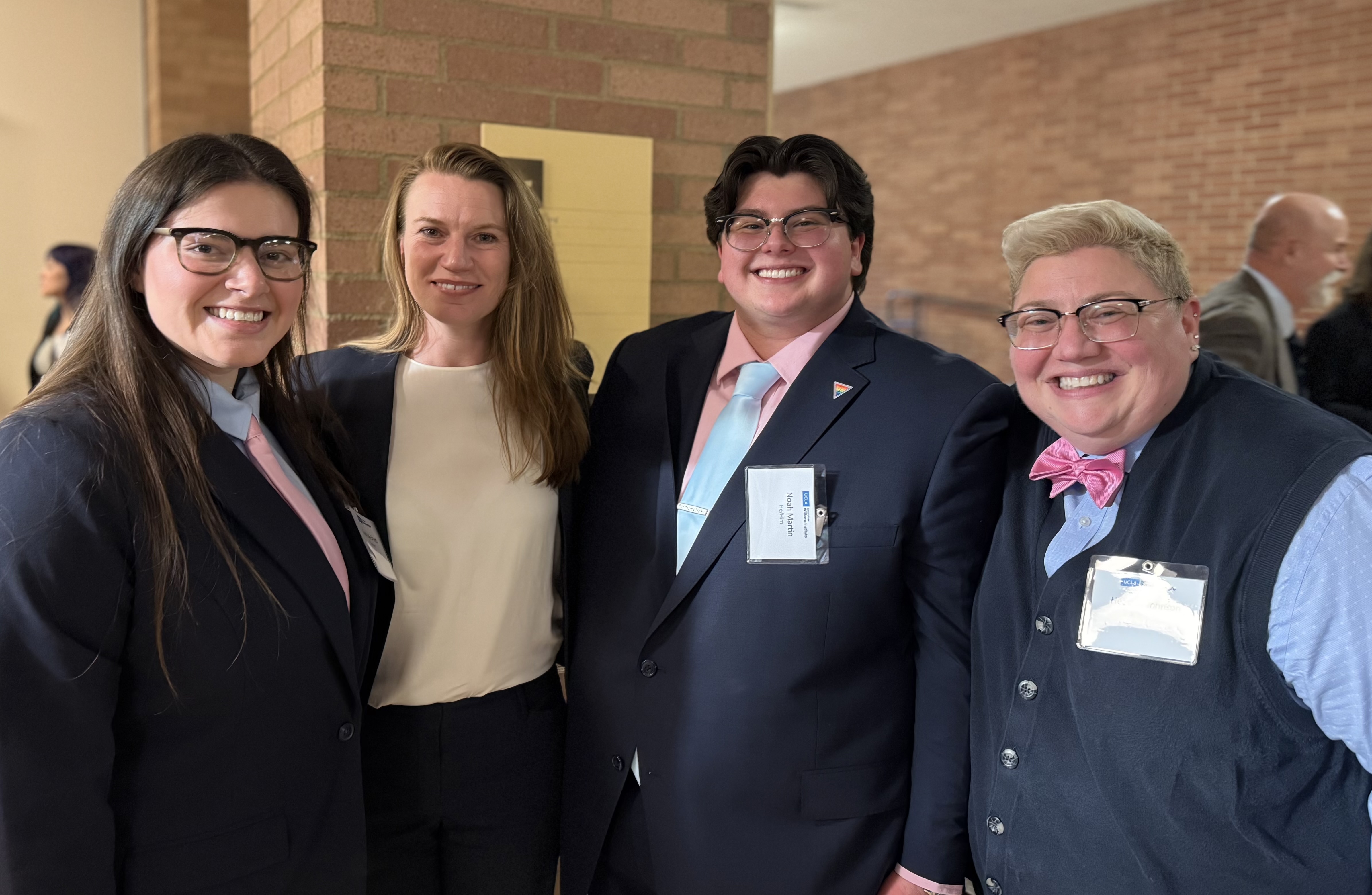
“I always say that MSU and Izzo are famous for March Madness—and I want MSU Law to be known for Moot Court March Madness,” she continued, noting how Spartans came out on top of many moot court “brackets” this year. “In all sincerity, success breeds success, and we plan to continue to build on this win to recruit top talent to our teams and programs.”
Johnson drew inspiration from the WIMC to launch MSU’s own Gender and Sexuality Moot Court Competition in 2022, which has seen more than 200 student participants since its inception. The event has effectively doubled national moot court opportunities for students in gender and sexuality law.
As part of the moot court program at MSU, students can take upper-level courses on Law and Gender, Constitutional Law and the First Amendment. This offers them exposure to topics, along with vital research and writing practice, ahead of competitions.
For Diamond, “It was extremely helpful to be able to talk to Noah about First Amendment issues, considering the fact that we were both in the First Amendment Clinic together.”
Martin agrees, recognizing this Spartan advantage as contributing to the team’s national championship win this year.
“After speaking with my competitors, I realized that many of them did not have the opportunity to take classes like the specialized ones that MSU Law offers,” he said, expressing gratitude especially for Johnson’s expertise, teaching and coaching.
Upon graduating this spring, Martin and Diamond are already eager to stay involved with moot court as alumni. And this culture of giving back is part of what it means to be a Spartan lawyer.
“Alumni from every year serve as volunteer judges to help prepare and cheer on advocates for both the WIMC and MSU’s GSMCC,” Johnson shared. “It is quite special to have that type of reach, support and connection across generations of MSU Law students and alumni. The success of the 2025 WIMC team will help motivate and reinforce the community of advocates and alumni enthusiastic about learning and supporting this work.”
This story originally featured on the College of Law website.
